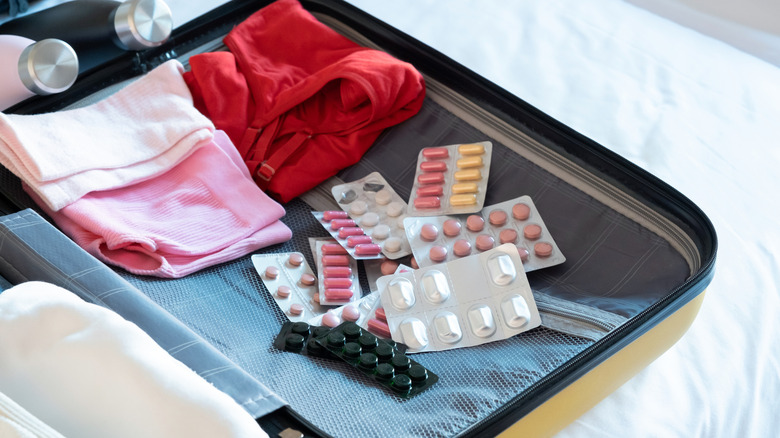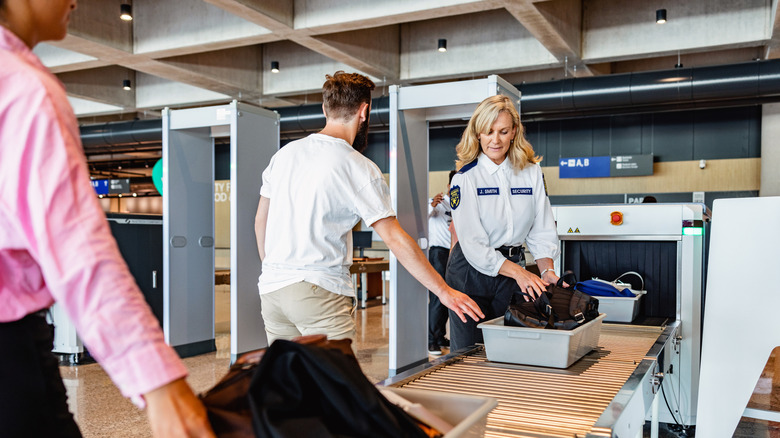The Most Common Medicines Travelers Need To Pack With Caution For Any International Trip
While most people already know that bringing illicit drugs into another country is a big no-no, they might also think that packing common medicines for an international trip should be okay. After all, in some cases, travelers need to bring prescription medication for a chronic condition. Meanwhile, others might pack common over-the-counter medications as a precautionary measure — think aspirin for headaches.
However, just because it's okay to have certain medications in the United States doesn't mean it's the same everywhere else, as each country has its own rules and regulations. With that in mind, there are some common medicines that travelers should pack with caution for their next international trip.
According to the Centers for Disease Control and Prevention (CDC), the most common medicines travelers need to be cautious of packing include narcotics like hydrocodone and oxycodone, sedatives like alprazolam and diazepam, stimulants for ADHD, certain decongestants for upper respiratory issues, and some jet lag medicines. Although the repercussions of traveling with restricted medicines vary per destination, travelers risk getting their medication taken away or, worse, getting thrown in jail or prison for breaking the law.
How to travel with medicine safely on an international trip
Although certain medications might not be allowed no matter what, you may be able to bring some restricted items with permission beforehand. For specific cases like this, the CDC has a pre-travel checklist you can review to have all your bases covered. It first suggests checking with the U.S. embassy at your destination and any layovers to determine what is and isn't allowed in. If required, you should obtain a prescription, written note, or medical certificate from your healthcare provider to show any security or customs agents. If a certain medication isn't allowed, another option is to get a temporary alternative from your healthcare provider that you can use during your trip.
Additionally, it's also important to consider how you'll pack your medicine before your flight. For example, travelers with injectable medications — such as insulin needles — should separate these items so that they're visible for both U.S. and international security and customs. Everything should also be properly labeled and stored to help avoid any unintentional mix-ups with the medications you are taking.
Above all, the most important thing is to do your due diligence by thoroughly researching what is allowed in the specific country you wish to visit. Even if this means postponing your trip or choosing a different destination, it's much better than getting stranded abroad without your medication — or tossed in jail in an unfamiliar country. Plus, there are already plenty of cool travel destinations in the U.S. you can head to (with your medication in tow) if you'd rather remain stateside.

